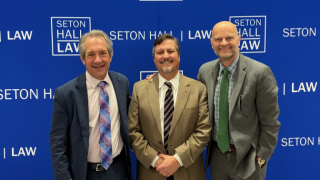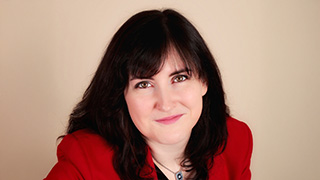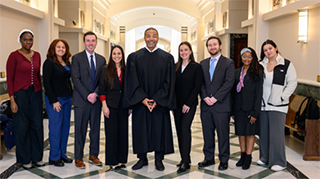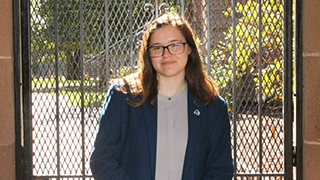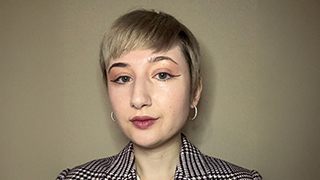National Security Fellowship Students Present Research to Naval Special Warfare Command - Seton Hall University
Monday, June 27, 2022
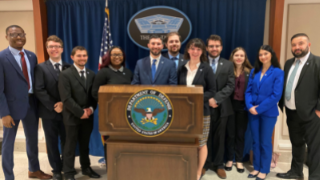
The 2021-2022 National Security Fellowship (NSF) graduate research team gave a briefing to a senior command staff member from the Naval Special Warfare Command (NSW) on May 6th as part of a research project that was given by the U.S. Department of State. This was the first time that the NSF team had ever presented their research to NSW.
As part of the NSW’s mission to provide maritime special operations forces to conduct full spectrum operations, unilaterally or with partners, to support national objectives, the students were able to brief on the relationship objectives and recommendations that could help future planning by the Command for future engagements in the CENTCOM area of responsibility.
NSW is a component of the US Special Operations Command (USSOCOM) enterprise. USSOCOM develops and employs fully capable Special Operations Forces to conduct global special operations and activities as part of the Joint Force to support persistent, networked, and distributed Combatant Command operations and campaigns against state and non-state actors to protect and advance U.S. policies and objectives.
While reflecting on presenting to NSW, first-year graduate student Brent Findon said, “The brief to the Naval Special Warfare Command was a great chance to not only present our suggestions but also to get great feedback from high-ranking officials that have actual experience in the field I would be interested in working in.”
In addition, Ahmad Choudhary, who graduated from Seton Hall this May, said, “The ability to present to NSW was an unparalleled experience because it allowed me to present information pertinent to U.S. government officials who could utilize it on the ground. This experience of presenting to such high-level officials has prepared me to pursue a career in foreign policy confidently.” Ahmad also went on to express his gratitude for the NSF research opportunity since it enabled him to pursue his goals of merging his academic experience with professional opportunities which he had hoped to gain from the School of Diplomacy and International Relations.
Under the mentorship of National Security Fellow and Seton Hall alum Mohamad Mirghahari (B.A. ‘02/M.A. ‘04), NSF graduate researchers spent the past academic year researching and writing an operational paper and an accompanying informational brief that contained several policy recommendations for avenues that the U.S. State Department could pursue to enhance its strategic relationship with Pakistan.
In the paper, titled "Enhancing the U.S. Strategic Relationship with Pakistan: A Multifaceted Approach," the NSF research team approached the U.S.-Pakistani strategic relationship through five lines of effort, including strategic messaging, public diplomacy, security, environment and climate, and the economy. Through these lines of effort, the NSF team aimed to give the U.S. State Department and other government agencies ways to build up the U.S.-Pakistan relationship while considering the Pakistan-India and U.S.-India relationships.
The 2021-2022 NSF research team was comprised of eleven graduate students from the School of Diplomacy and International Relations. They were led by Jocelyn Anderson and Bradley Kaufman and the rest of the cohort was comprised of Linda Adebola, Ahmad Choudhary, Chimdi Chukwukere, Matthew Enterline, Brent Findon, Christina Grossen, David Marina, Allison Risewick, Peter Roberto, and Alexis Turek.
Categories: Campus Life, Nation and World, Research


